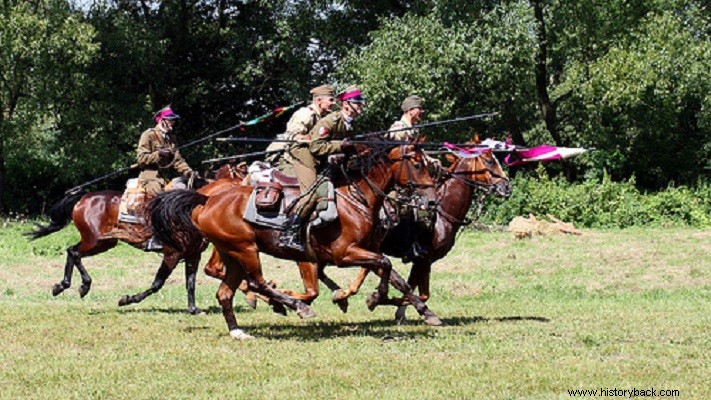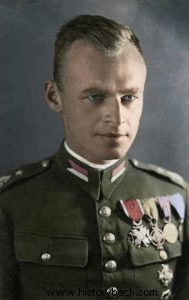
A prominent figure in the Poles' struggle against the Soviet yoke was Witold Piletski. Piletsky was born in Karelia in 1901. There his family had been exiled by the tsarist regime. His grandfather had been sentenced to exile in Siberia for "anti-Russian actions".
In 1910 the family moved to Vilnius, Lithuania. With the collapse of Tsarist Russia, Polish patriots were filled with hope that the time of freedom had come for their centuries-long enslaved homeland. Piletski, at the age of 17, enlisted as a volunteer in an armed group of Poles.
With the outbreak of war between the newly formed Polish state and the Bolsheviks, Piletski immediately joined the ranks of the Polish Army as a volunteer and fought as a cavalryman. Attached to the 21st Logger Regiment, he took part in the epic battle of Warsaw, where Tukhaszewski's red troops suffered a heavy defeat. He was decorated twice for the action.
Naturally, Piletsky had been imbued with the fear of the Soviets from a young age. But his worst fears would soon be confirmed. After the war he continued his studies and in 1926 he enlisted as a second lieutenant in the army. With the outbreak of the Second World War he found himself commanding a cavalry unit against the Germans. At the head of his men, he fought heroically. His ulama managed to destroy seven German tanks and two aircraft on the ground and shoot down another.
After the collapse, he returned to Warsaw, where together with Major Wlodarkiewicz, they founded the "Polish Secret Army" organization in November 1939. By 1940, the organization reached 8,000 members.
In the meantime, various rumors had begun to circulate about a German concentration camp that had just begun to operate at Auschwitz. Piletsky undertook the most daring mission. Voluntarily decided to go to Auschwitz, as a prisoner, to gather information about the death camp.
He deliberately found himself in a German blockade in Warsaw and was arrested. After two days of torture he was finally sent to Auschwitz, as prisoner number 4859. There he worked in various work groups, under the whip of the SS and almost died of pneumonia. But he survived and managed to inform the outside world of the horrific crime that was taking place there.
Nevertheless, although reports of him reached London and Moscow, no one paid attention. He finally managed to escape from Auschwitz in 1943, with the help of his partisans, taking German documents with him. For his self-sacrifice, however, he was promoted to hilarcho.
With the outbreak of the Warsaw Uprising, in August 1944, he found himself fighting the Germans again, as a common soldier. After the well-known development of the rebellion, he was captured by the Germans and remained a prisoner until the end of the war.
The end of the war did not bring freedom to Poland, as Piletski had hoped. He returned to Poland in October 1945 and immediately set up an intelligence network under the direction of the Polish government-in-exile in London.
It collected and transmitted information about Soviet crimes against Poles. On May 8, 1947, however, he was arrested and brutally tortured. She was tried in a mock trial, so ridiculous that even the Moscow trials in front of her seemed serious.
He was sentenced to death and executed on May 25 in the infamous Molokotov prison in Warsaw. This is how the man who exposed the crime of Auschwitz died, like a common bandit. In 2003, the then judges were called to account for their actions. Death overtook them. In 2006, the Polish state declared him a knight of the Order of the White Eagle, honoring him with the highest Polish decoration.

